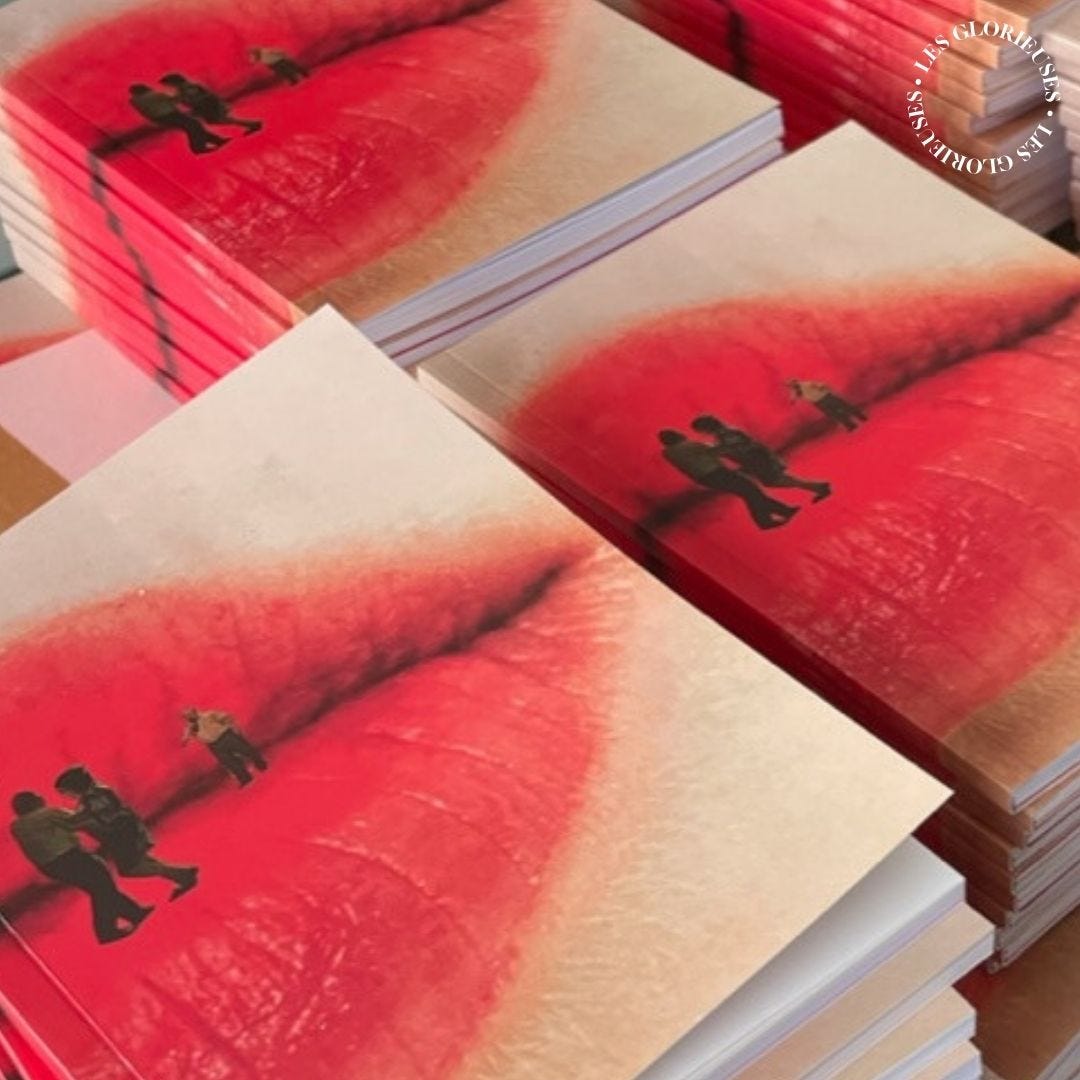Welcome to The Wrap, a monthly round-up of news on women’s and LGBTQIA+ rights around the world by the Impact newsletter. This month:
- 🇮🇳 One third of seats in the Indian parliament will be allocated to women
- 🇧🇷 Brazil’s supreme court considers decriminalising abortion
- 🇵🇰 Pakistan resumes issuing identity cards to transgender people
We are also asking you for something special this month: please consider making a donation to the Impact newsletter!
Feminist journalism isn’t cheap. The team at Gloria Media creates the newsletters we want to read. Because it’s rare for mainstream media to prioritise the voices, experiences and challenges of women, girls and gender minorities. That’s why we work with journalists around the world to tell little-known stories and highlight feminist issues. Your support will enable us to go deeper on these issues and to create new formats that we hope you will enjoy.
You can donate by clicking this button 👇
🎉 VICTORY OF THE MONTH 🎉
IRAN AND THE US — Narges Mohammadi, an Iranian activist and journalist currently imprisoned in Iran, has won the 2023 Nobel Peace Prize for “her fight against the oppression of women in Iran and her fight to promote human rights and freedom for all”. An indefatigable human rights defender, she is currently serving multiple sentences in the notorious Evin prison in Tehran as a result of her activism. Meanwhile, the Nobel Memorial Prize in Economic Sciences went to Claudia Goldin for her work on pay inequality and women in the labour force. She is the first woman to have won the prize alone.
Politics and Economics
INDIA — India has passed the Women’s Reservation Bill, which states that one third of the seats in the parliament and state assemblies should be reserved for women. Currently, only 15% of seats in the lower house and 14% in the upper house are held by women. The bill was first introduced in 1996 and has failed to be passed six times. This time, it received 454 votes in favour and two against in the lower house, while all the 214 upper house legislators voted in favour on September 21. The move has been widely celebrated, but the quota will take years to be fully implemented and will not apply to next year’s election.

NORTHERN IRELAND — Northern Ireland has announced that from now on men and women footballers will receive equal pay. Although they did not take part in the World Cup, the Northern Ireland women’s team recently made history by qualifying for the European Championship in England for the first time. The measure follows the example of the other countries that make up the UK. England reached pay equality in 2020, while Wales announced it earlier this year. In September, Scottish women players won a dispute against their federation for failing to offer women and men the same pay and working conditions.
Gender-based violence
COLOMBIA — As part of the peace agreements between the Colombian government and the Revolutionary Armed Forces of Colombia (FARC), the Special Jurisdiction for Peace has begun investigating sexual crimes committed against women and LGBTQIA+ people during the country’s half century of armed conflict. There are more than 35,000 estimated victims of sexual crimes committed by the security forces or guerrilla fighters between 1957 and 2016, from rape and abuse to forced abortion. Almost 90% of the victims are women or girls. The first phase of the investigation will focus on 3,000 cases that were documented by the Truth Commission during peace talks.
LGBTQIA+ Rights
PAKISTAN — Pakistan is once again issuing identity cards for transgender people as of September. Authorities had stopped registering transgender people on June 13 after the Federal Shariat Court in Islamabad ruled that a trans rights law did not comply with their interpretation of Islamic principles. Bureaucrats have now been instructed to reinstate the « X » option on identity cards, after the senator and activist Farhatullah Babar appealed the ruling. The Supreme Court has yet to make a decision on the country’s transgender law. The groundbreaking Transgender Persons (Protection of Rights) Act was passed by parliament five years ago, allowing gender reassignment and protecting transgender’s people rights to vote, inherit, apply for public jobs, have a driver’s licence and hold a passport without the need for gender confirmation surgery. The law also prohibits discrimination in schools, workplaces and public spaces.

MAURITIUS — The Supreme Court of Mauritius has ruled that a colonial law outlawing consensual sex between men is unconstitutional and discriminatory, and declared that the constitutional prohibition of sex discrimination must be interpreted to include sexual orientation. Two cases were brought before the courts: the first was brought by activist Abdool Ridwan Firaas Ah Seek with the support of Collectif-Arc-en-Ciel. The second concerned four gay men who protested that their sexuality was treated as a crime. Gay sex was prohibited in the 1838 Penal Code, which criminalised sodomy with a maximum penalty of five years’ imprisonment. Men, non-binary and transgender people were all affected by this law.
Reproductive Rights
BRAZIL — The president of Brazil’s supreme court, Rosa Weber, has opened a vote on decriminalising abortion up to 12 weeks. Weber, who argues that the abortion ban in the penal code is unconstitutional, asked judges to state their positions in a virtual session on September 22. But the vote was interrupted after a face-to-face session was requested. A new date must now be set. The criminalisation of abortion “imposes social roles on women, without any respect or consideration for their freedom and self-determination, distancing them from full and equal citizenship, » said Weber, who wants Brazil to follow in Mexico and Colombia’s footsteps in liberalising abortion laws. In February 2022, the Colombian supreme court decriminalised abortion, while Mexico did the same in September. In Brazil, abortion is punishable with up to four years in prison, and is only permitted in cases of foetal abnormalities, rape or risk to the patient’s life.
GREENLAND — 67 indigenous women are claiming damages from the Danish government for being part of a forced birth control programme in Greenland. At least 4,500 indigenous women had IUDs inserted without their consent in the 1960s and 1970s. The women, who were unaware of the treatment they were receiving, suffered years of bleeding, abdominal pain and infections. They now claim the Danish government violated their human rights in order to control the size of Greenland’s population, and are seeking compensation before going to court. Greenland is a former colony and currently a semi-sovereign territory of Denmark, and is home to 56,600 people.
New notebook available to purchase!
To celebrate eight years of Gloria Media newsletters, we have created this gorgeous notebook in partnership with Dirty Notes. It sells for €16.90. The paper is 100% made in the Paris region and by using it, you’re giving a second life to 150g of paper that was going to be thrown away without ever being used.
